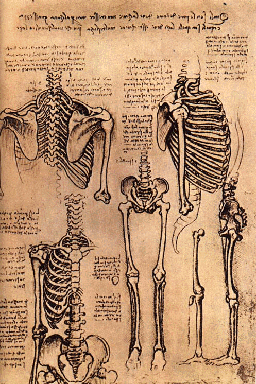
|
PHIL 201
Philosophy of Human Nature Schedule of Readings David H. Calhoun
|
|
Contact us by email:
|

|
PHIL 201
Philosophy of Human Nature Schedule of Readings David H. Calhoun
|
|
Contact us by email:
|
READING SCHEDULE
NOTE: Your instructors will try to notify you of any changes in this schedule. However, you are responsible for making sure that you know what readings are assigned for each class period. Unless your instructors inform you otherwise, the readings assigned for a particular day should be completed prior to class on that day.
Some supplementary readings are available in online versions.
Follow active links from the schedule to view these readings.
Introduction |
|
| June 29
(A) Introduction to course: Why study philosophy? What is philosophy? What will this course be like? (B) Truth: What does it mean when we say that something (e.g., some belief) is true? (C) God: How does God fit into philosophical discussion (especially in a Catholic institution)? (D) Human nature: What do we mean by "human nature"? |
|
Plato and Responses |
|

Socrates |
July 1
(A) What is the proper attitude to death and human life? Why? How ought we live? What is the soul? Is there any reason to think the soul is immortal? READING: Plato, Phaedo 57a-84b. (B) How does Epicurus' attitude toward death compare to Socrates' attitude? How does his attitude toward pleasure contrast with Socrates' attitude? READING: Epicurus, Letter to Menoeceus (ON RESERVE). The Epicurus reading may also be accessed online by following the hot link on the title above (note that the online version includes both the Letter to Meneoceus and the Letter to Herodotus; only the Letter to Menoeceus is assigned). |

Plato |
July 6
(A) What objections are raised to Socrates' arguments? How does he use his own experiences in thinking about causes to introduce a final argument? Does soul have an essence? Does Socrates' argument work? READING: Plato, Phaedo 84c-107b. NB: As you are reading, circle all instances of the word "cause" (or its variants) which appear in the text from 96a-107b. Review Reichenbach's Criticism
of Plato's "Forms" Argument for a summary and criticism of Socrates'
final argument for immortality.
|

Aristotle |
July 8
(A) What are the key points of Socrates' story of the afterlife? What do we learn about Socrates from the closing moments of his life? READING: Plato, Phaedo 107c-118. (B) What is Aristotle's understanding of the soul, the body and the person? How are different types of soul (plant, animal, human) distinguished from each other? READING: Irwin, "Aristotle," [selections] sections vii-ix, pp. 128-132; Aristotle, On the Soul II, 1-3 (ON RESERVE). |
Descartes and Responses |
|

Rene Descartes |
July 13
(A) What is Descartes' "problematic"? (Or, what kind of mushrooms were those?) READING: Understanding Descartes. (B) What was Descartes' experience of his education? What did he value? What did he find useless? Why? READING: Descartes, Discourse on Method, Parts One and Two. |
| July 15
(A) What things that initially seem certain does Descartes come to doubt? What are those doubts? Are there some things of which we can be certain? Why? READING: Descartes, Meditations on First Philosophy, Letter of Dedication, Meditations One and Two. (B) How does Descartes try to escape from radical doubt? READING: Descartes: Meditations on First Philosophy, Meditation Three. |
|

Thomas Aquinas
|
July 20 ()
(A) What can reason alone tell us about God? READING: Thomas Aquinas, The Existence of God (Summa Theologica, Part One Question Two) (click link for online version or obtain ON RESERVE). (B) What does Descartes believe that we can know about God? What approach does he take to understanding God's existence and nature? READING: Descartes: Meditations on First Philosophy, Meditation Five. (C) What is "Pascal's Wager"? Is it an argument for the existence of God? How does Pascal regard Descartes' philosophy? READING: Pascal, Pensees [selections] (ON RESERVE). (D) If God is good (so that He wants what is good for us), and God is all-knowing (so that He knows how to accomplish those things he wants to do), and God is all-powerful (so that He is able to accomplish all that He wants and knows how to do), then why are human beings such as to have false beliefs which are not good for us to have? READING: Descartes, Meditations on First Philosophy, Meditation Four. |
| July 22
(A) What is the character of the mental? What is the character of the physical? How are the mental and the physical related? What are the similarities and differences between humans and animals? READING: Descartes, Meditations on First Philosophy, Meditation Six; Descartes, Discourse on Method, Part Five (selection), pp. 26-34. (B) What is the "Official Doctrine" that Ryle criticizes? To what problems does the Official Doctrine lead? What is a category mistake, and how does the Official Doctrine commit one? What is the "broken-backed" argument? READING: Ryle, "Descartes' Myth" (ON RESERVE). (C) What about the brain? What about bats? (Huh?) READING: "Searle's Proposed Solution to the Mind-Body Problem"; "An Annotated Version of Thomas Nagel's Argument in 'What Is It Like to Be a Bat?'" (HANDOUTS) |
|
Biology and Human Nature |
|

Charles Darwin |
July 27
(A) What is the relationship between humans and animals? In what ways are they similar? In what ways are they different? READING: Darwin, "Comparison of the Mental Powers of Man and the Lower Animals" (ON RESERVE). (B) What are the two theories about the origins of biological complexity that Dawkins identifies? Why does Dawkins believe that it is now possible for one to be an "intellectually fulfilled atheist"? If you use Aristotle's four causes as guide, with what kinds of causes is Dawkins concerned? What is "Darwinism" and why does Dawkins believe that its rivals are doomed? READING: Dawkins, The Blind Watchmaker, Chapter 1 ("Explaining the very improbable") and Chapter 11 ("Doomed rivals"--selection) (ON RESERVE). (C) Is Dawkins right? Can we have scientific evidence for the existence of an Intelligent Designer? READING: Dembski, "On the Very Possibility of Intelligent Design" (ON RESERVE). |
| July 29
(A) What is a technology of behavior, and how can it be developed? On what causal assumptions does the progress of science depend? Are human beings truly free? READING: Skinner, Beyond Freedom and Dignity [selections] (ON RESERVE). (Note all the times the words "behavior," "cause," "science," and "technology" are used in this particular reading.) (B) What are the key features of the contemporary biological perspective on human nature? What might contemporary biology help us to understand about human societies and cultures? READING: TBA. |
|
Existentialism |
|

Friedrich Nietzsche 
Jean-Paul Sartre |
August 3
(A) What do you think Nietzsche means by the claim that "God is dead"? How are Christian theology, morality and views of human nature interconnected? READING: Nietzsche, The Gay Science [selection], Twilight of the Idols [selections], The Anti-Christ [selection], Thus Spoke Zarathustra [selection], "On Truth and Lie in an Extra-Moral Sense" [selection] (ON RESERVE). (B) What is existentialism? What is the point of the paper-cutter analogy? What do human beings really want? READING: Sartre, Existentialism and Human Emotion [selection] (ON RESERVE). |
Human Nature: The Modern Problem |
|

C. S. Lewis |
August 5
(A) What flaw lies at the heart of the scientific analysis of human beings? How does Percy's discussion Peirce's distinction between dyadic and triadic relations explain this problem? READING: Percy, "The Fateful Rift: The San Andreas Fault in the Modern Mind" (ON RESERVE). (B) What is "Man's power over Nature"? What is the final stage in "Man's conquest of Nature"? What is "Nature's conquest of Man"? READING: Lewis, "Abolition of Man" (ON RESERVE). (C) Wrapping up the course: What is human nature? Who are we? How does human nature relate to the subject matter of an ethics course? |
Back to PHIL 201 Philosophy of Human Nature (summer sections)
Back to David H. Calhoun's Home Page
Copyright 1998-1999 by David H. Calhoun and Brian B.
Clayton. This page last updated on Jun 29, 1999.